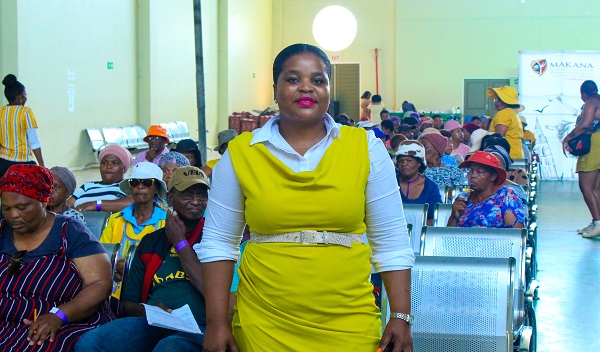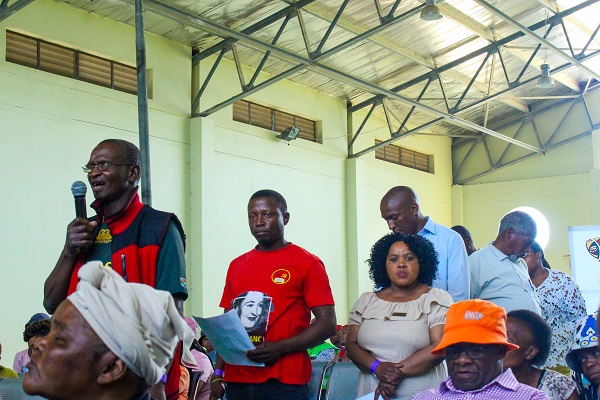By Fahdia Msaka
The Eastern Cape Provincial Legislature (ECPL) programme in Makhanda on 26 October 2023 focused on economic development, environmental affairs and tourism, cooperative governance and traditional affairs (Cogta), as well as community safety.
The Dr Beyers Naudé Local Municipality (Graaf Reinet) hosted the event this year. In order for all the local areas to get an opportunity to speak, the programme was live-streamed so all community members could watch it in their respective halls on a large screen, and it would be made available online.
According to speakers, the ECPL is a people’s assembly that upholds democracy and transparency and is committed to uplifting the lives of the people in the Eastern Cape by effectively administering its constitutional obligations.

Winnie Buyene organised the event, and she explained that the Legislature is removed from Bhisho once a year to allow community members to share their grievances. She further explained that every year, legislature rotates in each district or Metro to give all areas a fair chance for their queries to be heard.
Community members of all ages showed up to voice their grievances.
Fundiswa Hogu, from Ward 5, complained: “The youth are unemployed, yet their applications for the R350 grant are getting declined.”

Sizwe Mbunge, from Ward 3, asked the local Makana Municipality to reconsider investing in the township economy so the youth do not have to depend on the R350 grant.
Zammamiya Majola further pleaded with the ECPL committee that was present that the “creative industry needs to be well invested in”. She raised the lack of access to education the children of Makana are facing and the lack of information that is detrimental to society.

The rest of the speakers focused on the water crisis that has been plaguing the Makana Municipality, the electricity crisis, and the pothole calamity.
Legislature speaker Helen Sauls-August often cut off community members as they were voicing their troubles for there to be enough time for every community member’s voice to be heard.
Buyene elaborated that the community members would write their questions on paper and bring them to her. She would then take them back to Bhisho and record the queries as a petition according to the department’s guidelines.
The department must then respond to the Legislature.
The Public Participation Petition Committee would call the department to check their responses. After the Public Participation Petition Committee has accepted the department’s responses, they would return to the communities to answer their questions about the issues they raised.


